Buy Namenda Online
Buy Namenda Online. It is an effective medication used to treat Alzheimer’s disease. It is prescribed for people who have mild, moderate, or severe Alzheimer’s symptoms. Since Namenda is a medication, you must have a prescription from your doctor to use the drug. That’s why it is important to talk with your doctor about your condition and treatment options before you buy Namenda.

Fortunately, you can now buy Namenda online. There are many online pharmacies that offer Namenda. Most of these online pharmacies offer Namenda at competitive prices, and some even offer discounts. They also offer convenient shipping options, so you can get your medication as quickly as possible.
Before you buy Namenda online, make sure that you talk to your doctor. Your doctor can help you understand what dosage you need and which website is offering the best deal. Your doctor can also explain how to use it correctly and how to store it safely.
Namenda 5mg Tablets
Namenda 5mg tablets are the most commonly used form of Namenda. The 5mg tablets are usually taken once a day, but your doctor may change the dosage depending on your condition. It is important to follow your doctor’s instructions when taking Namenda 5mg tablets.
Namenda 5mg tablets may cause some side effects, such as drowsiness, dizziness, fatigue, and insomnia. If you experience any of these side effects, your doctor may lower your dosage or switch your medication.
If you are pregnant or nursing, it is important to talk to your doctor before using Namenda 5mg tablets. This medication is not recommended for pregnant or nursing women.
Online Namenda 5mg
When it comes to buying Namenda 5mg tablets online, there are a few things to keep in mind. First, make sure that you are buying from a reputable online pharmacy. The online pharmacy should have a good reputation and offer competitive prices. They should also offer convenient shipping options, so you can get your medication as quickly as possible.
It is also important to talk to your doctor before you buy Namenda 5mg tablets online. Your doctor can help you understand what dosage you need and which website is offering the best deal. Your doctor can also explain how to use it correctly and how to store it safely.
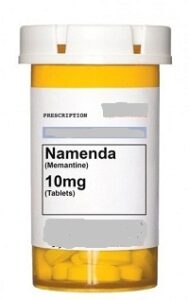
Finally, make sure that you follow the instructions on the label of the Namenda 5mg tablets. If you are not sure how to use the medication, talk to your doctor or pharmacist for more information.
When taking Namenda 5mg tablets, it is important to take the drug regularly and at the same time each day. This will help ensure that you get the full benefit of the medication and reduce the risk of side effects. If you miss a dose, you should take it as soon as you remember. If it is almost time for your next dose, skip the missed dose and continue with your next one as usual.
Although you can now buy Namenda 5mg tablets online, it is still important to talk to your doctor before you start using the medication. Your doctor can help you understand what dosage you need and which website is offering the best deal. They can also explain how to use it correctly and how to store it safely.
Buy Namenda (Memantine)
Namenda (memantine) is an oral medication that helps to reduce the amount of glutamate, a chemical messenger in the brain, that may be causing Memory and other cognitive recalls. It offers significant relief to those suffering from disorders such as Alzheimer’s and other cognitive deficits associated with dementia. Namenda (memantine) is available to buy over the counter at drug stores, online from major retail sites, and as a generic medication.
When ordering Namenda (memantine) online, always check the expiration dates and ensure that the product is genuine before making any purchase. It is important to follow all directions for taking the medication, as improper use can render it ineffective. Taking the medication more than prescribed can also lead to side effects. While side effects are not common, those that are experienced should be reported to a physician immediately.
Namenda (Memantine) Online
Namenda (memantine) is available to buy online from many major retail outlets. Many online pharmacies offer free shipping and provide discounts when you buy in larger quantities. Many of these online retailers offer autoship programs that will automatically send a refill of Namenda (memantine) to your doorstep when the medication needs to be replenished.
When buying Namenda (memantine) online, it is important to bear in mind that the medication should only be taken as prescribed by a physician. Do not exceed the prescribed run. Also, ensure that you verify the authenticity of the medication before purchasing by checking the expiration dates and following the directions for taking the medication.
Namenda (Memantine) Cost
Namenda (memantine) is relatively affordable, ranging in prices from $50 to $87 depending on the dosage and whether you buy the brand name or the generic version. Online retailers may offer discounts or special offers on various items when buying in bulk. Many health insurance plans may cover Namenda(memantine) if the individual has been diagnosed by a doctor and prescribed the medication. It is important to verify coverage with your health insurer before making any purchases.
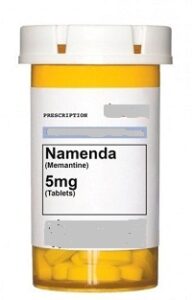
When ordering Namenda (memantine) online, always ensure that you are buying the genuine version of the medication and that the expiration dates are up-to-date. Buying from a reputable online retailer will ensure that you receive a quality product and that it arrives on time. Buy golden flugels 250mg ecstasy pills.
Overall, Namenda (memantine) offers significant relief from the cognitive deficits associated with Alzheimer’s and other forms of dementia. Purchasing the medication online is easy, and it can be a more cost-effective way to get the medication. However, it is important to make sure that you are ordering the genuine version of the medication that is up-to-date and safe to use. Additionally, it is important to consult with your doctor before buying and taking Namenda (memantine).

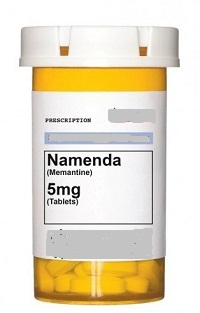
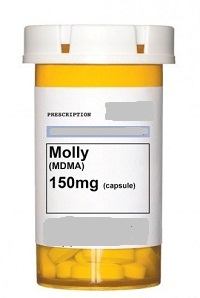
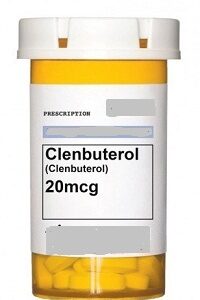
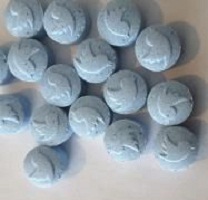
Reviews
There are no reviews yet.